Over 150 Binghamton University freshmen started the fall semester living in super occupancy housing (SOH) due to a lack of available living space for newly admitted students.

According to Residential Life, SOH refers to the temporary placement of three or more students in a living space originally designed to accommodate less than three individuals. SOH rooms are typically standard double

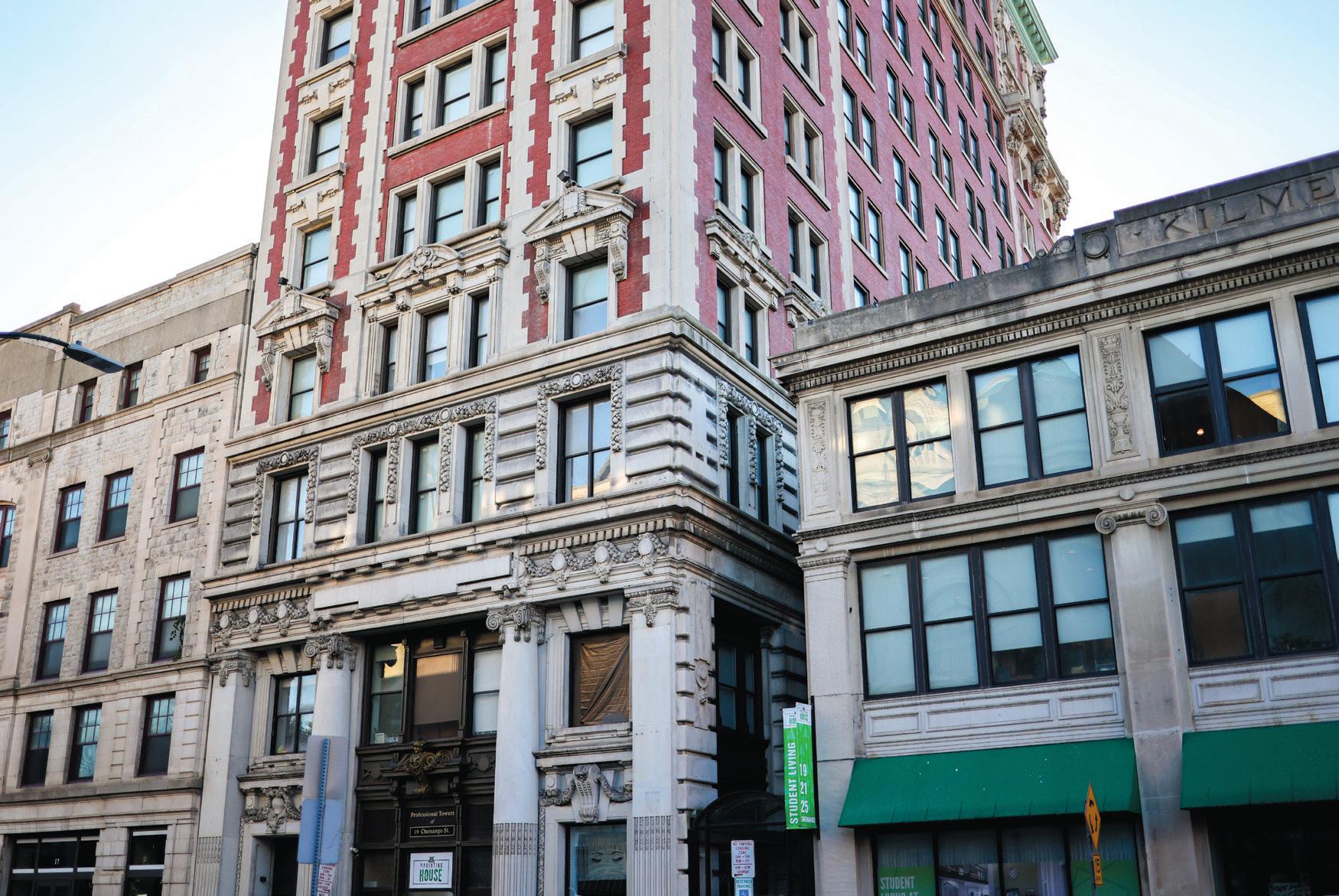
rooms with an additional bed or dresser added to accommodate a third roommate. Students placed in SOH rooms are continually prioritized for relocation into a standard double room or suite. The Residential Life website notes that a majority of SOH residents are moved elsewhere before the end of the fall semester.
Casey Wall, the director of residential life and housing, discussed how Residential Life is currently relocating students.
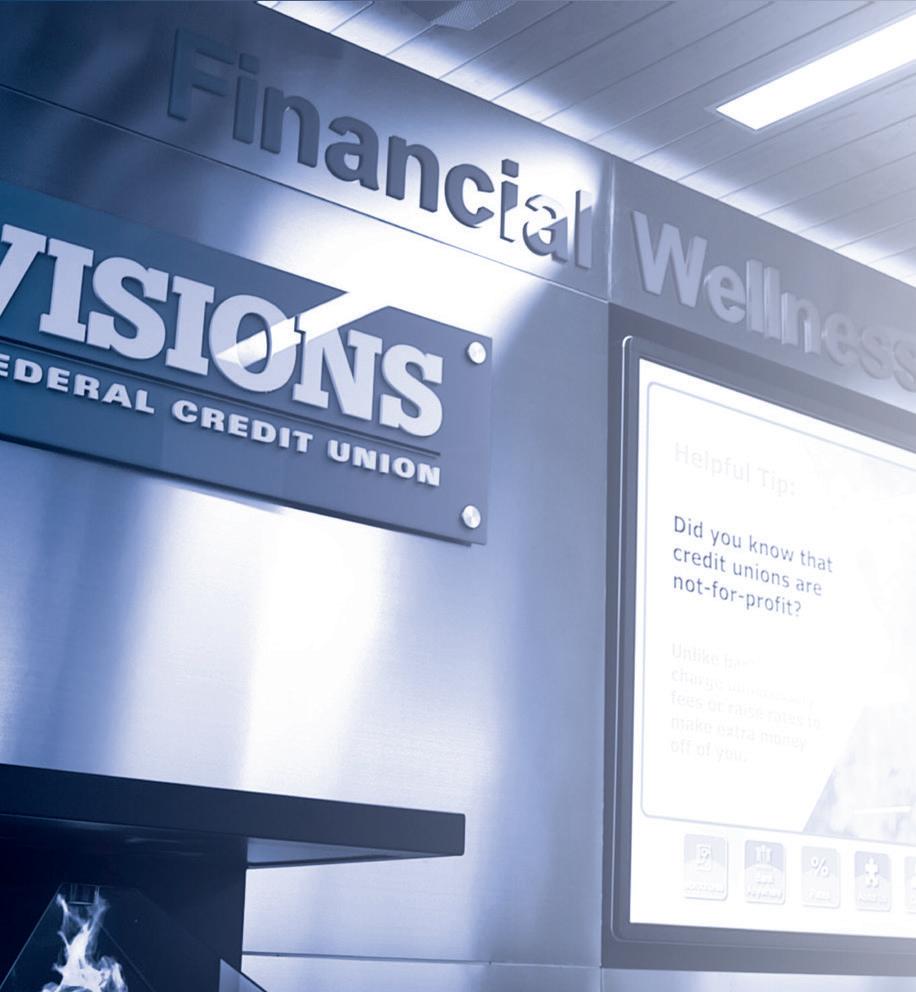
“We opened the fall semester with 153 students living in superoccupied rooms and currently have 60 students still living in this kind of housing arrangement,” Wall wrote in an email.
Living with other people is a difficult endeavor with aspects of compromise and growth in order to be successful. Each person enters a living situation with a particular set of expectations, behaviors and values that can interact with others in many ways. The most common tips about living with roommates deal with communication, compromise and awareness. But what do these actually mean? Here are some

specific tips that lay out what these words look like in action.



Set expectations
Before you live with someone, don’t assume that their expectations are the same as yours.
It’s a good idea to talk through some basic rules, like specific chores that need to be done in an individual or communal way, what to do in emergency situations, expectations for guests, what food is shared or separate, etc.
Keep an open line of dialogue
A common destructive pattern in a living situation can be when someone is irritated about something but refuses to
speak about it due to passive aggressiveness or fear. These are valid things to feel, but need to be overcome in order to resolve differences. There are many situations where someone is unaware that they’re inconveniencing you, and if you kindly communicate what your concerns are, chances are they will be more than happy to adjust. Healthy communication comes from in-person dialogue, as texting and “note-leaving” can lead to confusion or omission of another person’s feelings or efforts. Also, never assume that because you talk about something once that it’s settled. People need reinforcement, not to mention
that schedules and circumstances change with time.
Develop habits immediately
While communication is what causes about 90 percent of problems in living situations, the other 10 percent has to do with actually following through on what you and your roommates discuss. Building habits necessitates consistency, so it’s important to work on them right after you have your initial conversation.
For example, if you and your roommates make a chore chart, put it on your personal schedule. Get in the habit of sending texts before you have someone over or
leave for a night. Refill the Brita with water every time you use it.

Don’t take it personally Most of the time, when someone does something that bothers you, it’s not because they want to personally inconvenience you. Even if you have told them before about a specific thing, they may have not made the connection between the action and your feelings. This is why it is important to lay out not only what your expectations are, but why you have them. There may be disagreement on the “why,” and that’s where compromise comes in.
See tips page 10
Tuesday, September 19, 2023 | Vol. CII, Issue 3 | Binghamton University | bupipedream.com The Free Word on Campus Since 1946 OPINIONS ARTS & CULTURE NEWS SEE PAGE 10 SEE PAGE 4 SEE PAGE 5 How to make the most out of your living community at any stage in college, A detailed and honest guide for those considering moving off campus, The Editorial Board discusses the importance of community spaces, Check out students’ anonymous housing horror stories, A list of things to consider before signing a lease, SEE PAGE 9 SEE PAGE 2
Residential Life houses overflow students in super occupancy housing Tips and tricks for living with roommates 101 caspar carson photo editor Leases must be written in common language and cannot include provisions waiving a jury trial or the warrantability of habitability — the right to a safe, clean and livable home. See soh page 3
Super occupancy housing consists of double rooms with an additional bed to accomodate a third resident. Joseph Brugellis and Tyler Rizzo news intern and news contributor Six thoughtful and practical tips for living with roommates in college. Stephen Folkerts arts & culture writer The Union Branch Hours Mon – Fri: 9:00 a.m. – 5:00 p.m. Sat, Sun: CLOSED Campus ATM Locations Outside our branch in The Union Glenn G. Bartle Library Tower The Events Center Outside Dunkin’ Donuts BINGHAMTON UNIVERSITY’S OFFICIAL FINANCIAL PARTNER From Campus to Careers Build Your Future with Visions Explore our job listings and #ClaimYourSeat at visionsfcu.org/careers Visions Federal Credit Union is an equal opportunity employer whose goal is to achieve a positive work atmosphere while encouraging a healthy work/life balance. M/F Disabled and Vet EEO/AA Employer. Federally insured by NCUA. We’re here for you all around campus, including our branch in The Union, the Financial Wellness Center at the Fleishman Center for Career and Professional Development, and the Visions Center for Student-Athlete Excellence. We’ve got you covered for your money matters during college and beyond. And remember, you can also get the exclusive Bearcat debit card at the Visions branch in The Union! Show your BU pride by stepping around town with this card. Renters’ rights: What to know for first-time tenants See Rights page 3
The Bundy Museum, a staple museum and community center, recently lost one of its largest donors, which is putting the museum’s operation in jeopardy. While it was initially opened in 2004 to preserve the home and history of the Bundy family and company, which would eventually evolve into International Business Machines (IBM), over the past twenty years, the museum has served as much more. The Bundy has hosted countless concerts, shows and festivals featuring local bands and theater productions. It also houses WBDY-LP 99.5 FM, a community radio station, Binghamton Photo, the community’s only darkroom space, WordPlace, a community literacy center and Riot Act, a
volunteer-run book store.
The museum relies heavily on outside funding, with 15 percent of the museum’s yearly budget coming from foundations and grants and 65 percent from individual donors and underwriting. The museum gets no funding from the City of Binghamton. Now that a major donor has pulled out, the museum might have to risk closing by the end of the year. The Bundy’s funding crisis is a blow to the entire community. Unfortunately, the issues that the Bundy is facing are part of a greater national pattern. Across the United States, community spaces or “third places,” as were coined by sociologist Ray Oldenburg, are diminishing.
EDITORIAL: SAVE THE BUNDY, SAVE THIRD PLACES
Third places are spaces outside of home and work where people gather and connect. Third spaces take many forms, such as coffee shops, libraries, clubs, churches and parks. The existence of community spaces, and sharing space and conversation with neighbors, is a mode of harm reduction. These spaces are vital to fostering community in the first place, and their existence has been found to be able to mitigate loneliness and promote mental and physical well-being among citizens. Community spaces even serve political purposes — in an extremely divided national political climate, people in neighborhoods with more community spaces have higher confidence in local
governments. This could be because these spaces make people more attached to their neighborhoods and can foster conversation about local issues between community members.
Despite the importance of third places, in the United States, 44 percent of Americans live in “moderate-amenity” communities, with 33 percent living in “low-amenity” communities. Museums, in particular, have severely struggled financially since COVID-19, with United States museums collectively losing as much as $29.75 billion since the lockdown. Community spaces are also distributed unevenly, with high-amenity neighborhoods being more urban, white and educated.
In suburban or rural places
Peace quad volleyball

like Broome County, where homes are more spread out and public transportation and space are less utilized, having these community spaces is even more important. In fact, a Penn State University study even found that social infrastructure in rural communities may promote healthier aging among older adults.

There are many factors that threaten the existence and use of third places, including the pandemic and lockdown shrinking our social and physical realities and the increasing use of technology for communication. However, public spaces, especially those that are free or offer reduced prices to attend, must also receive constant funding to survive. If adequate funding
cannot be adequately secured from third parties, local and state governments should have a responsibility to keep them alive, as they are important social goods.
The Bundy Museum is an invaluable resource and space for Broome County residents and Binghamton University students, and its closing would negatively impact us all. Not only does the museum serve as a space for community events, but it also preserves important local history that threatens to be forgotten. We hope that the Bundy Museum is not forced to close its doors and that the local government realizes how important its existence is and provides the necessary support.
Monday, April 3, 2017 Monday, October 2, 2017 Thursday, October 5, 2017 PAGE
Tuesday, September 19, 2023 Fall 2023 Business Manager* Lukas Ladekarl business@bupipedream.com Managing editor* Bella Daidone manager@bupipedream.com Editor-in-Chief* Lia Richter editor@bupipedream.com news editor Brandon Ng news@bupipedream.com asst news editors Ella Michelle Connors Tresa Karnati asst arts & Culture editors Hudson Burrows Revati Gelda sports editor* Johnny Yang sports@bupipedream.com Fun editor* Michael Waxman fun@bupipedream.com design Manager* Alexa Valadez design@bupipedream.com design assistants Madison Moore photography editor* Caspar Carson photo@bupipedream.com Copy desk ChieF Allison Peteka copy@bupipedream.com teChnology Manager Wilson Huang tech@bupipedream.com asst Copy desk ChieF Emma Alicea asst sports editor Jacob Knipes Emily Ciarlo arts & Culture editor Alexis Yang arts@bupipedream.com opinions editor Doris Turkel opinions@bupipedream.com asst photography editor Kaitlyn (Kai) Depalma asst opinions editor Desmond Keuper asst. Business Manager Daniel Cygan Adam Shemesh businessassistant@bupipedream.com address University Union WB03 4400 Vestal Parkway E. Binghamton, N.Y. 13902 phone 607-777-2515 weB bupipedream.com stabilizing:pinochole schedule:destabilizing Pipe Dream is published by the Pipe Dream Executive Board, which has sole and final discretion over the newspaper’s content and personnel. Positions seated on the executive board are denoted by an asterisk. Pipe Dream is published online Mondays and Thursdays while classes are in session during the fall and spring semesters, except during finals weeks and academic breaks. The content on the Opinions page with bylines represent the views of those authors and do not necessarily represent the views of the Pipe Dream Executive Board. The content of advertisements do not necessarily reflect the views of the Pipe Dream Executive Board. We reserve the right to reject ads for any reason. All letters submitted for publication must include the author's name, year and major. Please limit letters to the editor to 400 words and guest columns to 750 words. Pipe Dream reserves the right to edit submissions, and does not guarantee publication. All submissions become property of Pipe Dream. Guest column submissions may be emailed to the opinions editor at opinions@ bupipedream.com, and all letters to the editor may be sent to editor@bupipedream.com.
II
Views expressed in the opinion pages represent the opinions of the columnists. The only piece which represents the views of the Pipe Dream Editorial Board is the Staff Editorial, above. The Editorial Board is composed of the Editor-in-Chief, Managing Editor, News Editor, Opinions Editor, Sports Editor and Arts & Culture Editor.
The Bundy Museum’s funding crisis should be a call to action to preserve community spaces, which are crucial to community building and the mental and physical well-being of citizens.
jacob gressin photo intern
Starting off the semester right with some quad time! Students captured playing volleyball on the peace quad in August.
SOH caused by a lack of on-campus housing
“Based upon past experience with [SOH], we anticipate that all students will be successfully re-assigned into their permanent room assignment by October, such that only those who wish to voluntarily remain in [SOH] will do so.”
The current need for SOH stems from a variety of factors — including an increase in both student applications and acceptances — as the University has accepted more students than campus has standard housing space for. BU received a record-breaking 49,500 undergraduate student applications for fall 2023, a 19 percent increase from the previous
admissions year. Benjamin Medina, a freshman doublemajoring in economics and mathematics, spent his first two weeks in an SOH arrangement. He did not learn that he was being placed in SOH until he moved in.
“I didn’t know it was going to be [SOH],” Medina said. “I got there my first day, on [Aug. 20], and I got the top bunk because the other two people in the room got there first. So, it was basically like ‘first come, first served.’”
The Residential Life web page notes that a majority of SOH residents are moved elsewhere before the end of the fall semester. The
time spent in SOH depends on how quickly standard housing rooms are made available. In addition to the growth of the student body, Wall identified other factors impacting available housing space.
“These include the number of returning students who select to stay in on-campus housing, the number of admitted students who enroll, the number of students who choose to withdraw, defer, no-show or transfer and the number of beds available in any given year based upon building renovations,” Wall wrote. Students assigned to live in SOH are asked to select one of three colors
at random to determine the set of furniture that they receive. To accommodate three residents, SOH students may be assigned either a single bed or one mattress on a bunk bed. While all three occupants have a dresser for storage, only one student gets access to a full closet, leaving the other two residents with a half closet to hang clothing and other belongings. While three students are expected to utilize the living space, only two desks are present in every SOH room. The third student can request that an extra desk and chair be provided, but there is no guarantee that a SOH room can accommodate a third desk.
The two desks already present in Medina’s room were claimed by his fellow roommates, leaving him without a desk and chair. He described other challenges that arose from three people sharing a space designed for only two.
“When I would climb into my bed, I would have to climb onto the desk of the guy who slept in the bunk under me, because the ladder to my top bunk didn’t work,” Medina said. “I would also just study in the common room or the living room, but I honestly could not do that much studying there.”
To further alleviate the housing shortage on campus, Residential Life
says that it will continue monitoring the situation to determine whether new living spaces should be built. The office mentioned that Old Rafuse in the Old Dickinson Community, newly renovated, will reopen in January and will be able to house approximately 130 students.
Medina emphasized why fixing the on-campus housing shortage should be a priority for the University.
“It’s very important to have your own space — your own desk [and] your own bed where you can put your belongings and go back to for studying,” Medina said. “It should definitely be a [priority] to get the housing accommodations in order.”
Know your rights under New York state law
With the competitive annual hunt for off-campus housing on the horizon, it’s important to understand your rights as a tenant.
Brechner news contributor
With over 18,600 students returning to Binghamton University this fall, the housing process is as competitive as ever. As the hunt for off-campus housing starts in earnest, here’s a guide on your rights as a renter.
Illegal lease provisions
A lease, which contains the terms and conditions of the rental, cannot be changed without the consent of both parties. According to
the office of Letitia James, the New York state attorney general, leases must define the due date and payment of the rent, the length of the lease and the obligations of both the landlord and the tenant.
Leases must be easily readable and in everyday language, not legalese. The following provisions are illegal under state law — if they are in your lease, then the contract is not enforceable.

Giving up the warranty of habitability
Lease provisions cannot waive the warranty of habitability — your right to a livable, safe and clean home and associated public areas.
It also requires landlords to make necessary repairs to your home. Violations include failing to regularly provide adequate heat or hot water, unhandled insect
infestations and appliances that do not function properly. However, the law doesn’t protect against selfcaused damages.
Make sure to document all breaches of the warranty of habitability, and give your landlord written notice of the conditions — which will allow you legal recourse to sue your landlord for a rent reduction or to withhold rent entirely until conditions are repaired. New York state law protects you from retaliatory evictions, though it can be difficult to prove in court that an eviction was retaliatory in court.
Landlords must respond as soon as possible for emergency repairs and have one week to respond to non-emergency repairs, according to the Ithaca Tenants Union. If your landlord fails to make timely repairs, you may withhold
rent money to make the repairs yourself, if the cost of the repair is reasonable and the damage creates “a danger to the life, health or safety” to occupants. Failure to meet these conditions when doing a self-repair can result in eviction.
Giving up the right to a jury trial
You are entitled to a jury trial if your landlord attempts to bring a lawsuit as a result of alleged property damage or personal injury. This right cannot be removed by any language in your lease, though your landlord may mandate in the lease that you must pay their legal fees in the case of a lawsuit — which automatically entitles you to force your landlord to pay your fees as well.
Illegal fees
The Housing Stability and Tenant Protection Act of 2019 prevents landlords
from charging security deposits greater than one month’s rent, application fees exceeding $20, forcing you to pay to have a pet and adding charges separate from the security deposit.
Rental transparency
Landlords are required to let tenants inspect apartments before moving in. Ensure you put all requests for repairs in writing to create a paper trail, which should help protect you from the withholding of a security deposit at the end of your lease.
Late rent
After your rent is due, you have five days before it is legally considered late. Your landlord cannot charge late fees greater than $50 or 5 percent of the rent, whichever is less. You have the right to negotiate a payment plan with your landlord during or after
these five days, and this right cannot be taken away by terms in your lease.
Landlord entry
Landlords can only enter your apartment for five reasons, according to the Ithaca Tenants Union:
1. Move-in or move-out inspections at the start or end of a lease
2. Inspections to ensure compliance with the terms of your lease
3. Showing the apartment to potential future tenants or buyers
4. Making repairs
5. Responding to a safety emergency Your landlord must notify you at least 24 hours in advance of arriving for inspections and showing, though that requirement is waived when responding to a safety emergency.
bupipedream.com | September 19, 2023 NEWS 3
soh from page 1 housing from page 1 caspar carson photo editor Over 150 students began the semester in super occupancy housing and 60 remain, according to Casey Wall, the director of residential life and housing.
Tyler
What to know before signing your lease

Signing a lease is one of the main aspects of offcampus living.
Natalie Pan and Chloe Smeader news contributors
For many Binghamton University students, hunting for off-campus housing is a hassle, especially if it’s your first time. It can be tough to navigate both the city of Binghamton and the housing process if you don’t know where to start. One of the main aspects of off-campus housing is signing a lease — an agreement between you and your landlord to live in the allotted property for an agreed upon period of time. Some landlords may try and take advantage of unsuspecting students, so here’s a list of things to keep in mind before signing your lease.


1. Know what’s included in your rent
Some properties will include the cost of utilities in the rent payment, while others may not. Utilities can cover a variety of things — water, gas, electricity, sewer and trash services, so make sure you know what you’re responsible for. Make sure to check if WiFi is included in your rent. Some properties come with appliances, like microwaves and refrigerators, so you don’t have to worry about bringing those items from home.
2. Amenities
For students without
cars, make sure the property is a walkable distance to the nearest Broome County Transit or Off Campus College Transport (OCCT) bus stop — and know the schedules. If you have a car, look for a house or apartment that comes with a garage, driveway or accessible street parking. Students that ride bicycles should look for a bike rack nearby. For laundry, make sure an in-unit washer and dryer is included or that there is a laundromat nearby. Some popular student housing complexes, like UClub and Twin River Commons, cater their amenities — including private gyms, outdoor spaces and study lounges for the student population.
3. Inspect your property
Tour the property and document any damages throughout. Communicate them to your landlord with a paper trail, in order to retain your security deposit, as landlords can charge you for damages at the end of your lease period. Common things to look out for include mold, broken appliances and damaged walls.
4. Be willing to compromise

Be specific with what you need because it might be difficult to find the perfect home with a long list of wants, especially if you’re on a tight budget. Having multiple roommates can help ease costs and make finding off-campus housing easier. Know what you value and stick to it — maybe you don’t need that at-home pinball machine.
5. Location Location Location
Be mindful about where you’re looking for housing. Some areas of Binghamton are more saturated with students than others, so if that’s a priority, look in Downtown Binghamton or on the West Side. Take your safety into account by making sure you feel comfortable with where you
want to live. If you enjoy sampling restaurants or shopping Downtown, look for a house or apartment that’s near a commercial district or has an easy bus route there.
6. Ask Questions
Landlords may not list everything you want to know online, so ask questions about the property guidelines, important
dates or any hypothetical situations. Some helpful questions to ask are “when is rent due?” or “how soon will repairs be made?”
Asking questions helps you familiarize yourself with the home and landlord, so you know what to expect.
The biggest tip for offcampus housing? Start looking for places to rent now! The longer you wait, the more limited your options
agamYa rao design assistant
can be. Make sure you have a solid group of roommates who know how much they are willing to pay and be prepared to pay a security deposit and the first month’s rent when you officially sign the lease. Good luck with the housing process!

bupipedream.com | September 19, 2023 NEWS 4
Some landlords may try to take advantage of unsuspecting students renting by themselves for the first time, so it’s important to be mindful and deliberate before signing a lease.
BU students share housing horror stories

Student experiences
span bad landlords, moldy food and a racist roommate.
Staff Reports
Living with roommates can present interpersonal conflict and unforeseen challenges. Follow along with the stories of fellow Binghamton University students, as they document their housing horror stories. All submissions are anonymous and have been edited for length and clarity.




Amicus Nightmare
Now a former student. Lived at an Amicus property. Landlords were rude and unprofessional in communications and had to be bothered over and over to install heating in my roommate’s bedroom, which had heat at [the] time of move-in. They also had to be bothered repeatedly to repair a porch column that had rotted through and was supporting a roommate’s bedroom. My room was also consistently colder than code-required temperature guidelines — 10+ degrees colder than rest of house — and nothing was ever done despite multiple reasonable requests. House was filthy upon move-in with no apparent work having been done to clean up from the last tenants. I did, however, receive a security deposit back, perhaps because I had left the house vastly cleaner than I had found it. They also left our door open after a tour they gave of the house.

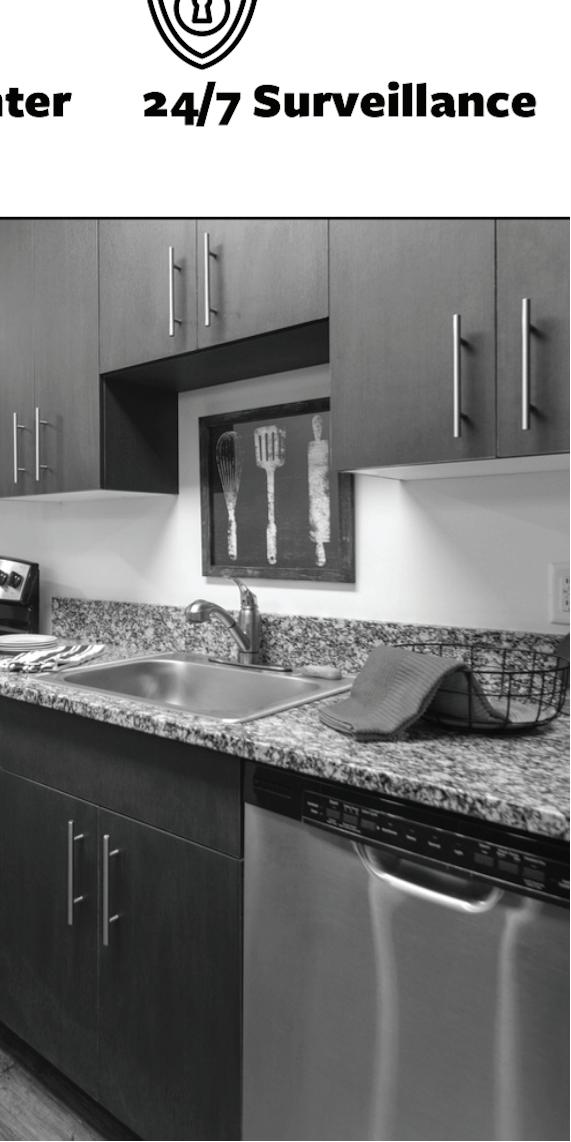
Code Red I lived off-campus and I’ll be honest, I’m not sure the house was even up to code. My room didn’t have grounded
plugs and I had to buy plug adapters when I moved in. I was hoping to be able to live there this year as well because the rent was pretty cheap at $390 per person, but almost immediately the landlord told us that rent would be going from $390 with utilities included to almost $600 without utilities for this school year. I asked if he was going to be doing any work on the house to justify such a drastic increase and he essentially said no — the prices are going up because that is what other landlords were charging in the area. In addition to the plugs not being updated, I told him right away that I wasn’t able to lock my bedroom door, an issue that never got fixed. In addition to the plugs in my room, all of the mattresses were awful — it was like someone had repeatedly jumped on the bed. On both sides and in some spots, the springs were actually coming through the mattress. It also said in our lease that we were responsible for replacing any fuses that got blown which isn’t a problem in and of itself, but when the girls [moved] in for the spring semester, they blew a fuse, and since they weren’t familiar with how to fix a fuse, I went to go fix it, assuming that the fuse box had been updated at some point in the last 50 years. I had to go to Home Depot and not only buy the fuse, but also try to change the fuse meaning there was a high chance of setting the house on fire. I managed fine, but it seems pretty dangerous to make students change a fuse in a box twice their age. Finally, at the end of the year, I’d moved out, and the landlord said I’d be getting
my deposit back. In the lease, it said we’d get it back within 30 days of move-out. I didn’t know until recently, that’s illegal in New York state, and they have to return it within two weeks. I was going on two months without my deposit because he was giving some [bullshit] that he was waiting for the last electric bill. I texted him multiple times about it and eventually, I said, “time to be the problem” and texted him I was calling legal resources, because what he was doing was illegal. Within five minutes, that man was calling me to avoid the text
trail I was making. I had that money by the end of the day, but I’m sure he’s doing the same thing with any other property he’s renting. This was a rental that was on the official Binghamton offcampus housing site that said they vetted these landlords and properties, but I’m sure he’s doing the same crap he did with me and the other girls who lived in the house.
Racist Roommate
[I] lived in Mohawk and had an insanely racist roommate, who left a dirty tampon on my things, made racist remarks about South
Asians, made threats to “beat the shit out of suitemates,” but when confronted, actually told us to never speak to her again, and she transferred schools. [Residential director] did nothing and quit the next year!


Winter Surprise [BOLD]
My roommates left pasta in the sink during winter break, and it had mold when I got back.
Silence of the Lambs
Back when I lived on campus, I had decided to live with a close friend. Everything went great for the first semester as we became better
friends and spent all our time together. However, things took a turn for the worse during the spring semester, [and] they essentially dropped me as a friend. I was pretty hurt since at the time they were my closest friend and had made a new friend group without me. In an admittedly petty move, I gave them the silent treatment for almost an entire month of the semester. The tension in the room was crazy for that month, but we eventually made up and are still friendly, but I’ll never forget living in a silent room for a whole month.
ava lempa design contributor
One student recalled that their landlord did not respond to reasonable requests for repairs, broken heat and multiple alleged code violations.
bupipedream.com | September 19, 2023 NEWS 5
Airbnb fuels gentrification and housing crisis in NYC
Julie Ha Opinions Intern
Unaffordable housing in New York City is a familiar issue that resonates with most natives, including myself. A study released in April found that almost 80 percent of NYC residents living below the true cost of living are considered housing-burdened, or contribute over 30 percent of their income to housing, which not only generates the risk of homelessness, but also strains the affordability of basic necessities such as food and health care. Empirically, this crisis has disproportionately affected residents of color, especially in new, “hip” or gentrified areas like Bushwick and the Lower East Side. It doesn’t mean that there’s a true shortage of housing, though — even for low-income residents. In fact, more than 13,000 rent-stabilized units in NYC have been vacant for years. Even more shockingly, the city has boasted more Airbnb listings than apartments for rent as of April — 20,397 versus 7,669 units, respectively.
Gentrification and inflation
aside, Airbnb has become a
silent but major force in the housing market since its start in 2008, as shortterm rentals became more profitable than long-term rentals. Its profitability is despite the fact that available units could be sitting empty for any given number of days per month.
On Sept. 5, NYC officials started to enforce Local Law 18, which strictly regulates short-term rentals. However, considering how prolific Airbnb is, it will likely function as a de facto ban. Short-term rental hosts now need to register with the Mayor’s Office of Special Enforcement and can face fines up to $5,000 for violations of this rule, in addition to previous laws that mandate hosts be present on the property during a stay. Meanwhile, booking sites like Airbnb and Vrbo are held accountable for checking a host’s registration status in order to collect fees from a stay. The law has already caused thousands of Airbnb listings to be deactivated.
As of Aug. 28, only 257 out of 3,250 registration applications had been approved, although the criteria remained unclear.
While it’s too soon to tell whether this ban on Airbnb will effectively address the city’s housing affordability
crisis, it is a step in the right direction, specifically in curbing gentrification and displacement.
Airbnb is not just savvy technology adopting the entrepreneurial, slumlord-esque spirit of late capitalism, nor is it “short-term” in the same way that most bookings are.
Rather, Airbnb is culturally mediated, functioning through the intersection of social relationships and public spaces, and those short-term rentals do eventually add up to impact the neighborhood, community and culture for the long term. After all, the real economic opportunities for Airbnb hosts are in the hottest neighborhoods with the best bottomless brunch spots, coffee bars and of course Trader Joe’s. Think about the unwelcomed Whole Foods on 125th and Lenox Avenue in Harlem
— “Bye-bye, black Harlem, glad I knew ye.” Angela Helm of The Root writes, “Hello, Whole Foods, I do enjoy your products, but if you can gentrify greens, what chance do we really have?”
But it’s also no wonder that people flock to Jackson Heights for the great food or that videos of BedStuy block parties go viral online. People romanticize
and cherish NYC for its culture, and Airbnbs have been capitalizing on the displacement and appropriation of cultural cachets. The McGill University School of Urban Planning found that “nearly three quarters of the population in neighborhoods at highest risk of Airbnb-induced gentrification across New York is non-white.”
Meanwhile, across 72 predominantly Black NYC neighborhoods surveyed in a study by Inside Airbnb, 74 percent of the Airbnb host population was white, compared to about 14 percent white resident population. The discrepancy echoes what we’ve already known about Airbnbs — many hosts dedicate their properties entirely to short-term rentals, not actually living in them. It suggests a naive form of cultural tourism as well as a willingness to jeopardize the affordability and health of a neighborhood for profit. It also debunks the misconception that a rise in Airbnb use in a neighborhood would generate wealth for longterm residents and people of color.
But what came first? Gentrification or Airbnb tourism? It’s practically
impossible to say for certain, although there is a high correlation between Airbnb use in predominantly Black neighborhoods and threats to affordable housing. Crown Heights North, for example, is ranked seventh for Airbnb use in all of NYC and has seen a 54 percent increase in its white population from 2010 to 2014. A 2018 controversy surrounding steel-pan bands, a tradition introduced by Caribbean immigrants, reveals the changing cultural landscape that correlates with this changing demographic. Bands’ practices were constantly interrupted by cops called upon by new residents unfamiliar with the tradition. As Tom Slee put it, the sharing economy, including Airbnbs, “is extending a harsh and deregulated free market into previously protected areas of our lives.” Not only can a few individuals make fortunes by indirectly displacing an entire neighborhood, but the sharing economy also commodifies everyday life. It should transform the way we think about labor, housing as a right, public space and its socioeconomic implications.
Some cities, like Toronto, have also enacted
restrictions on Airbnb, which can be a helpful case study for housing affordability initiatives as time goes on. However, when it comes to gentrification, the NYC market has unique cultural precedence and recognizability, which also indicates vulnerability. Local Law 18 may or may not alleviate housing demand in NYC, but displacement in areas at risk of gentrification is a worthwhile start to rectifying Airbnb’s disruption thus far, and it would be amiss to dispiritedly distrust the law this quickly. Curbing gentrification takes a whole village — proper education, cultural sensitivity, material investments and Local Law 18 and its proper enforcement are all needed. I believe NYC’s culture can still be saved, and in this weird space between residential housing and hotel accommodations recently occupied by Airbnbs, I see the rebirth of our neighborhoods.
Julie Ha is a junior majoring in English.

Landlords fuel Binghamton housing crisis
the typical American is “rent-burdened,” a term meaning that “30 percent of the median [United States] income is required to pay the average rent.”
or weeks left before rent prices increase yet again, so they need to sign ASAP, locking them into another year of high rent before they get the chance to look anywhere else.
It is no secret that America is languishing under an ill-governed housing crisis — COVID-19 revealed the abuse of lax renters laws across the country. Yet in spite of inflation, towns like Binghamton witness diminishing safety and cleanliness. Student housing is one example in the macrocosm of real estate corruption that exhibits how landlords take direct advantage of people who are in need of timedependent housing while not returning the value at which they demand. Without stringent rentcontrol laws, landlords will continue to use the less fortunate as their personal piggy bank, relying on the destitution of others not aware of the intricate American financial system.
Ever since the 1970s, rent has increased faster than median income rates. Now, as of 2023,
In Binghamton, we see similar patterns, with a 26–30 percent increase for 1-2 bedroom places and the median rent price rising over $1,000 from August to September in 2023. If you are currently living off-campus, this may not come as a surprise, as tours and rent-signing events have come into full swing. Evidently, landlords seem to recognize when most leases are signed and increase prices as a result.
You may even be watching as your apartment, which hasn’t increased much in value, becomes hundreds of dollars more expensive. Thus, it has become common for students to search for housing a full year in advance to avoid inflation. Plenty of student housing monopolies also use scare tactics in order to get current tenants to resign as quickly as possible, saying that tenants only have a few days
Despite shady price increases and the frequency of the “landlord special” — shortcutted ways landlords will ‘fix’ issues around a property to keep costs low and profits high —landlords on #propertytok are trying to garner sympathy — James Coupland, for example, says that landlords are also being affected by interest rates and regulations. This is despite the fact that investment properties are exactly that — investments that come with risks and are not created to be an endless money geyser for those who have the ability to pay the upfront costs. Regardless, landlords in California throw parties to celebrate the legal reinstatement of evictions, and real estate agents discuss the lack of appreciation in Binghamton properties despite annual increases in rent.
“Binghamton does not appreciate,” Binghamton
and Ithaca real estate agent Stephanie Jacobson comments on “Bigger Pockets,” an investment advice forum. “Like, at all. We joke that it’s recession-proof because the Depression never ended. Ha! Your [cash flow] will be much higher than other markets, but you’ll sell the property for what you bought it for seven years from now.” In other words, due to poverty rates in the area (ha?), Binghamton properties do not naturally rise in value like properties in more ‘valuable’ areas, so the money comes from utilizing the forever flourishing student market to make more money each year. Despite this yearly pattern, Binghamton hasn’t boasted higher safety or cleanliness statistics. Binghamton’s crime index has been unsteadily on the rise since 2007, and the city is famously “peppered with hundreds of vacant properties” as a result of decreasing population sizes since the 1950s. These facts indicate that prices increase because landlords recognize
there is simply nowhere else Binghamton University students can live, giving them a guaranteed steep return on their investments and a yearly turnover in residents that aren’t around long enough to complain about community quality. Not to mention, these manipulations that drown university students in debt also funnel locals into markets that outpace median income and into the growing homelessness epidemic.
It is these abuses that illuminate one fact — America needs federal rent control. Currently, landlords in states like New Jersey “are free to increase rent at whatever rate they deem appropriate.”
Last year, New York’s Rent Guideline Board set a 3.25 percent limit for one-year leases and a 5 percent limit for two-year leases, despite the fact that the median household income decreased by 2.3 percent. Organizations in Binghamton such as The Stakeholders of Broome County and their university-centric group,
The UniverCITY Tenants Union, who advocate for housing justice and the Binghampton Community Land Trust, which acquires blighted housing to keep the area affordable for long-time residents, are the best local defense against landlords who take advantage of the student housing market. These are the organizations that need to be supported and expanded throughout the country. Otherwise, the United States will continue to see rising eviction and poverty rates despite decreasing community safety and cleanliness, as well as an increase in student debt as young people scramble to try and house themselves around the school that is already demanding thousands of arbitrary dollars for a piece of paper that is only depreciating in value.
Emily Vega is a senior majoring in English.

Monday, April 3, 2017 Monday, October 2, 2017 Thursday, October 5, 2017 OPINIONS Tuesday, September 19, 2023
Airbnb rentals must be restricted, new law has potential.
Despite increasing rent, lack of investment in communities.
Emily Vega Opinions Columnist




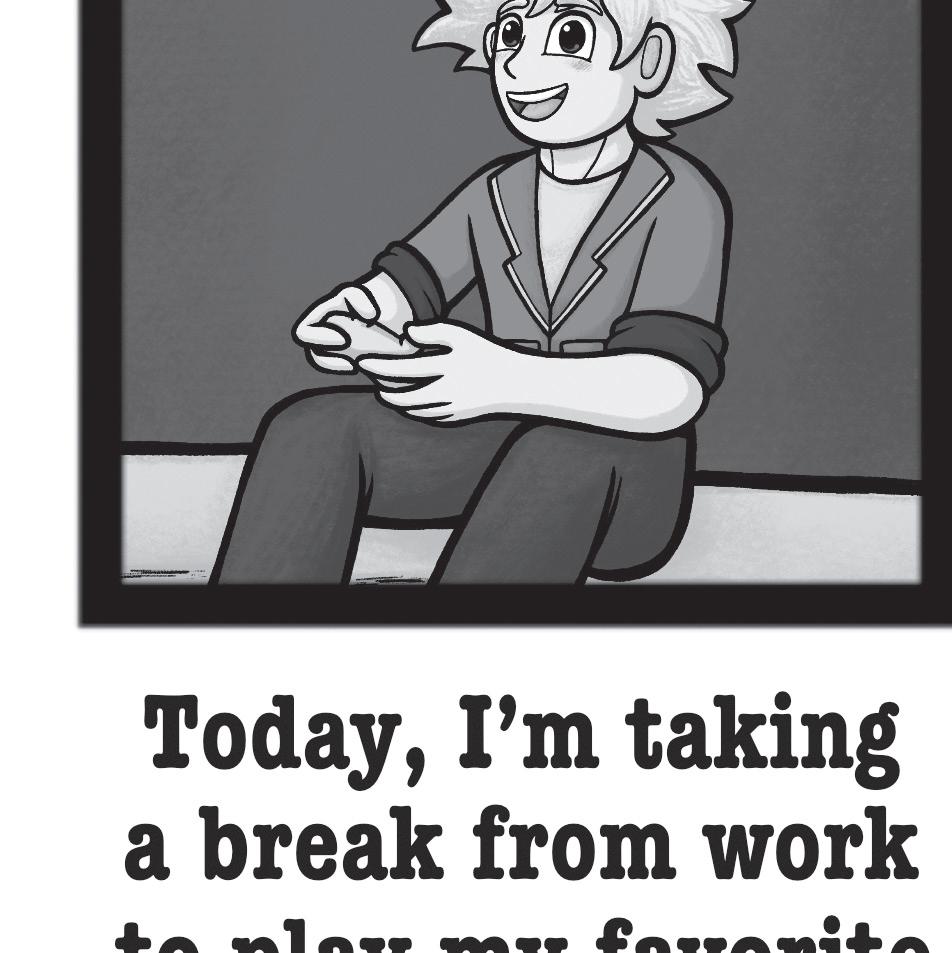


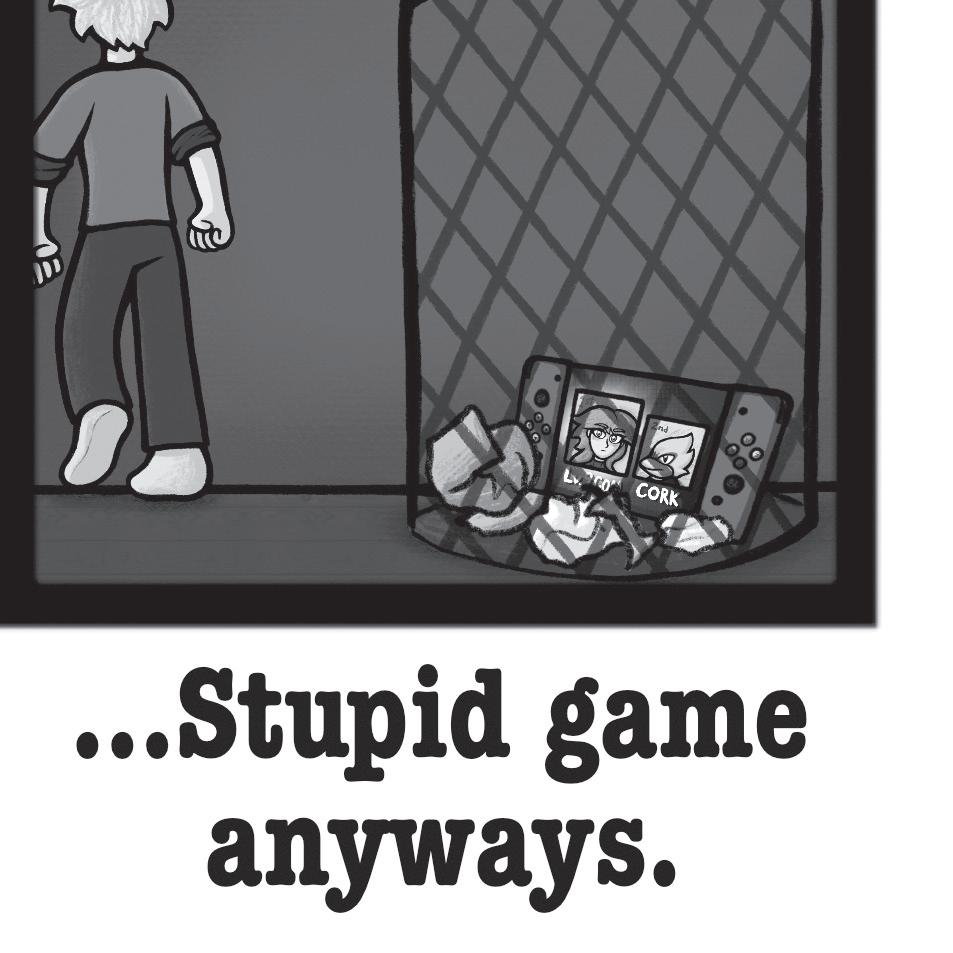










Monday, April 3, 2017 Monday, October 2, 2017 Thursday, October 5, 2017 Tuesday, September 19, 2023 F UN
Editor
Editor
Level : medium Date : 2023-09-17
Michael Waxman/Fun
Michael Waxman/Fun
SUDOKU
Quick and easy recipes for college cooking
spinach leaves. Put the bacon in the bottom of a small, oiled microwavable dish and then place the egg substitute on top and microwave uncovered for 30 seconds, stirring after.
As Binghamton’s weather cools and the semester’s classwork begins to ramp up, it can be hard to muster up the courage to brave the outdoors every time you get a little peckish. To keep that study streak alive and to keep those poorly insulated hands warm, here are a few simple recipes that you can make in your dorm with just a microwave and some simple kitchen supplies.

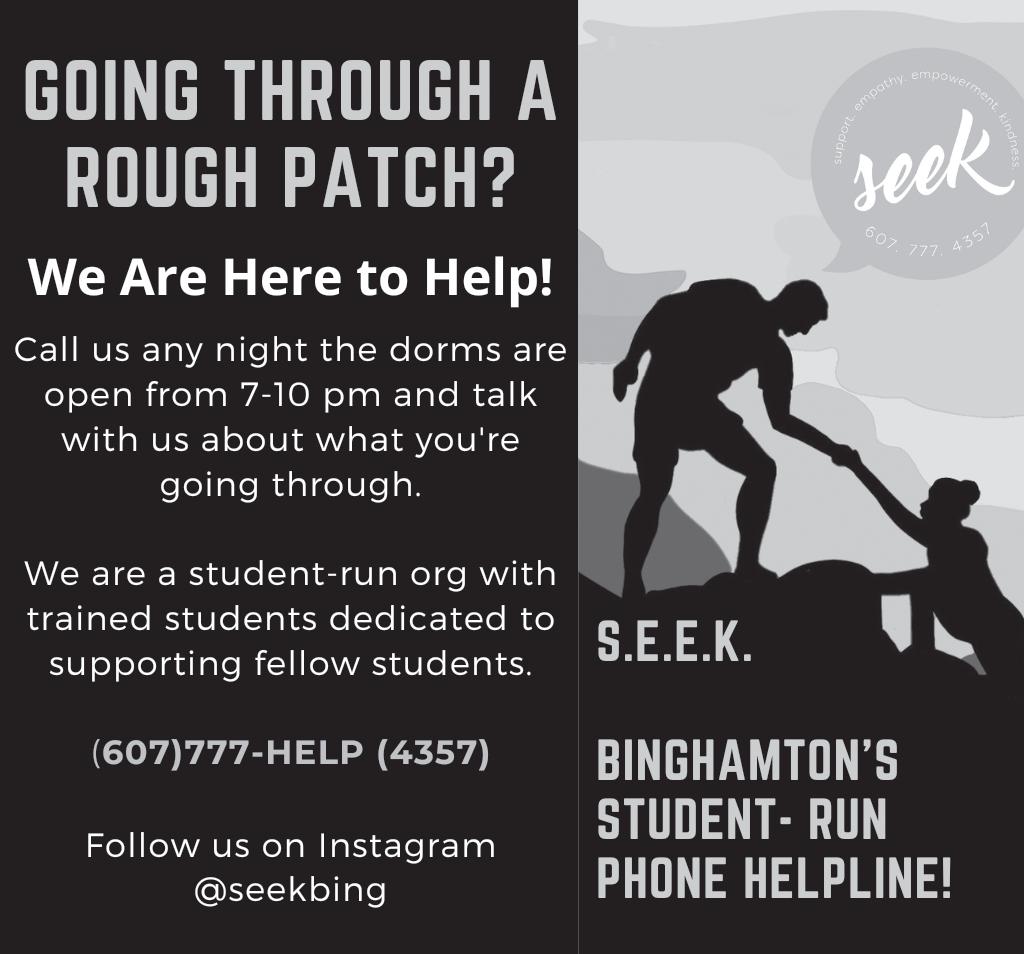

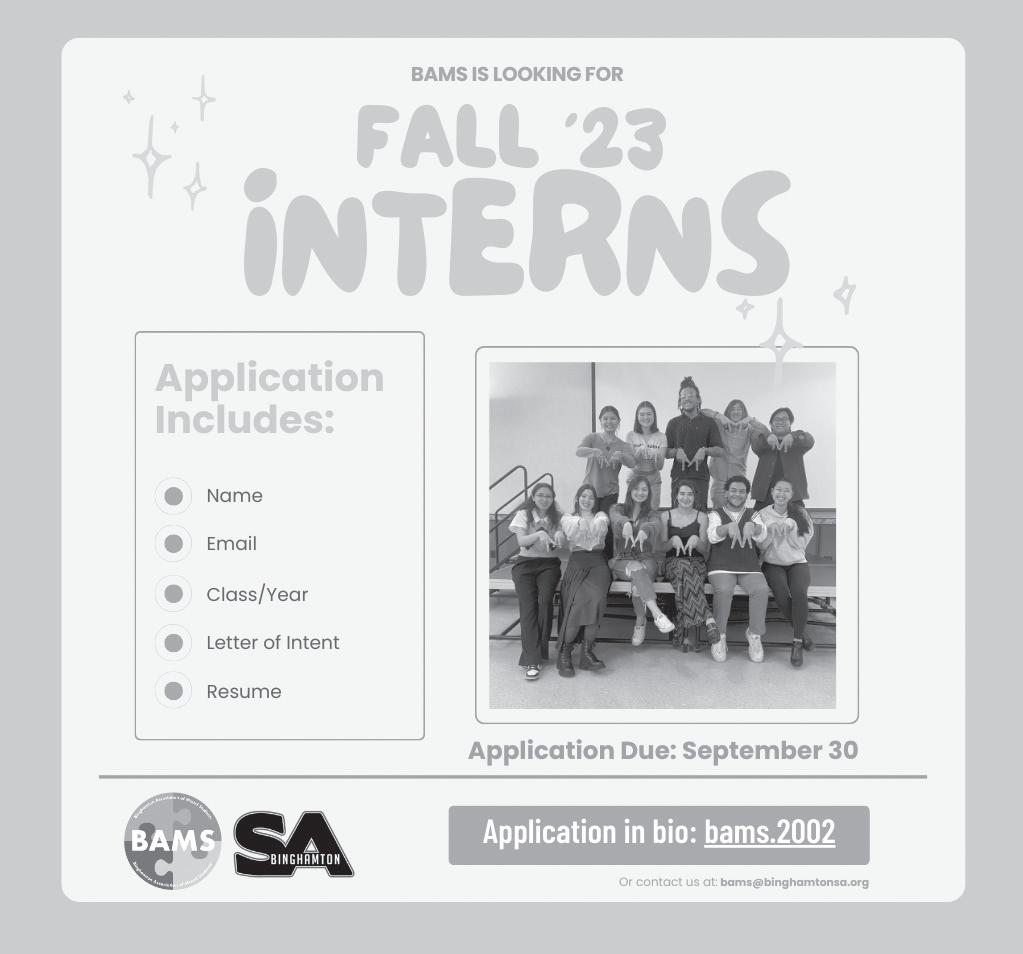


Breakfast
The first breakfast option is perfect for the fall — a 10-minute pumpkin Cream of Wheat. This oatmealadjacent meal from Taste of Home requires ½ cup milk, ¼ cup half-and-half, ¼ cup canned pumpkin, 3 tablespoons of Cream of Wheat, 2 teaspoons of sugar and 1/4 of cinnamon. All you need to do is throw the milk, half-and-half and Cream of Wheat into a microwave safe bowl for one minute and stir until combined. Microwave for another minute covered, so that the mixture may thicken. Stir every 30 seconds to get the perfect consistency. Fold in the remaining ingredients and serve.
Another microwavable breakfast meal is Taste of Home’s egg substitute sandwich. All you’ll need is your favorite kind of bacon, ¼ cup egg substitute, 1 tablespoon salsa, 1 tablespoon shredded cheese, one English muffin or other kind of bread and
Microwave for another 1530 seconds or until the egg substitute is almost cooked to your desired consistency and then top with cheese and salsa. Cook for 10 more seconds, or until the cheese has slightly melted. Lay the spinach on the bottom piece of bread then place your egg, bacon and second piece of bread on top and enjoy.
Lunch Now that it’s lunchtime, you might be craving a more filling dish, like Taste of Home’s Greek brown and wild rice bowl. This recipe uses one package of ready-to-serve whole grain brown and wild rice, but this can be substituted for any ready-to-serve rice packet. You will also need ¼ cup of Greek vinaigrette, ½ of a ripe avocado, ¾ cup halved cherry tomatoes, ¼ crumbled feta cheese and ¼ cups of pitted olives. In a microwave safe bowl, combine the rice and the dressing. Cover and microwave for about two minutes or until the rice is heated through. Combine the remaining ingredients and enjoy.
As another option, Taste of Home’s bacon turkey sub is a great source of protein. Grab ¼ cup of mayo, some slices of deli turkey, your favorite cheese, two or three strips of bacon, 2 teaspoons of dried basil, one apple and the bread of your choice. Cook the bacon in the microwave according to the package instructions. Mix the mayo and basil
and spread that over the halved slices of bread. Layer the bottom slice with the turkey, cheese, bacon and sliced apple. Serve with chips and enjoy.
Dinner
After a long day of productivity, it’s dinnertime. Sometimes if you would like mac and cheese, the boxed variety tastes too processed and you need a similar but fresher alternative. Look no further than The Better Martha’s “Better Than Instant” mac & cheese in a mug. Grab ½
cup of elbow pasta, ½ cup of your favorite cheese, one cup of water and a mug to get started. Pour the plain pasta into the microwave safe mug and add the cup of water. The water should completely cover the pasta but be at least ¼ inch from the top of the mug. Microwave uncovered for eight minutes, pausing to stir the pasta and add more water if necessary. After cooking, immediately add the cheese and combine until gooey. If the cheese doesn’t melt, microwave for
another 30-60 seconds. Let it cool for one minute and serve.




Dessert
Finally, as a treat for all your hard work, reward yourself with this yummy apple crisp recipe. You will need one peeled and thinly sliced apple, ½ tablespoon butter, 1 teaspoon brown sugar, 1 teaspoon flour and ¼ teaspoon cinnamon for the filling. For the crispy top, you’ll need 2 tablespoons softened butter, 1 tablespoon flour, 3 tablespoons old fashioned
oats, 1 tablespoon brown sugar and ¼ teaspoon cinnamon. Mix the apple filling ingredients in a bowl. Mix the top ingredients in a separate bowl, working the butter in with a fork. Layer half the filing on the bottom of a microwave safe container, layer half the crispy topping, then the rest of the filling and then the rest of the topping. Cook for three minutes in the microwave. Serve with vanilla ice cream if desired.
bupipedream.com | September 19, 2023 ARTS & CULTURE 8
are a few tasty and easy recipes to make in your dorm.
caspar carson photo editor
Here
& culture
Six dorm friendly and hearty recipes that will leave you wanting more.
Emily Vega arts
intern
Pros and cons of off-campus housing

Living off campus is a rite of passage for many college students. It can be exciting getting to live with your friends and having your own space, but like with everything else, living off campus has its perks and disadvantages. Deciding to live off campus is definitely a big step, so here are some factors to think about when deciding if off-campus living is for you.
Perks
1. Freedom and independence
Living off campus is the first time you will be fully independent in college. It is a great crash course for learning everything about living on your own before graduation. No longer are you following the rules of dorm curfews or mandated quiet hours during finals week — now you have the freedom of doing what you want, when you want, because it is your living space.
2. Cost Living off campus can be cheaper if done right. Paying rent is a big part of living off campus, and it is definitely cheaper than the alternative on-campus option. Many choose the former to save money for any plans, like grad school or traveling.
3. Living with friends Dorm life can be fun, but it is often very hard to see your friends if they live in different living communities. Having all of your friends living under one roof is not only fun, but convenient as well. Living with people who you already know and trust can take some of the weight off of your shoulders when living off campus, and it makes it easier to hang out with them when they live down the hall from you.
4. Moving out is an option, not an obligation Having housing all year round is a perk when it comes to breaks and holidays. No longer are you forced to move out at a certain time from your dorm or have to take everything out of your room, only to move it all in again the next semester.
Disadvantages
1. The commute to campus and literally everywhere else
If you’re one of the students who doesn’t have a car, chances are you will have to take Off Campus College Transport (OCCT) buses to campus. Everything automatically becomes less accessible when you don’t know when, where or how to take the OCCT or the Broome County bus. Everything from the time you wake up to when you leave your house or apartment has to be planned out to the minute, or else you find yourself missing the bus and stuck waiting
for the next bus for another 20 minutes.
2. Lack of socialization
Socializing is hard for everyone, but it is definitely easier to branch out if you live on campus. Living on campus grants residents the luxury of going home whenever they like, but for those who live off campus and do not own a car, it is something that they have to think twice about. Many club meetings or activities tend to run late since the majority of classes end around 6 or 7 p.m. That means having to stay on campus longer, which
means having to take the OCCT bus late. OCCT buses don’t come as regularly at night as they do during the day, so you are left deciding whether or not it is worth it to stay on campus.
3. Increase in responsibility
Living off campus comes with many perks, but also with many responsibilities that many students don’t realize that they are now responsible for — such as being in charge of setting up the internet.
Additionally, if you find yourself living in a house off campus, you are now
responsible for having to deal with any problems that occur in the house, from making sure that you have heating in the winter to any repairs that the house may have to undergo.
Oftentimes, students living on campus take advantage of the janitorial services and how clean they keep our living spaces. Now if you find yourself living off campus, you and your roommates will have to be the ones responsible for keeping everything clean in your new homes.
4. Budgeting
Budgeting becomes your
best friend when living off campus. Everything from meal planning to paying for rent and utilities becomes a part of everyday life. Luxuries like buying new clothes or even paying for a bus ticket to go home are replaced by basic living necessities like having to pay for utilities or groceries. Living off campus requires not only a lot of planning but also a lot of responsibility. If you do plan on living off campus at any point in your time here at Binghamton University, make sure that it is something that you feel confident in managing.

bupipedream.com | September 19, 2023 ARTS & CULTURE 9
sourced from pressconnects.com
Living off campus comes with independence but also responsibility.
arts &
intern
Here are a few things to keep in mind if you are planning to live off campus.
Emily Maca
culture
A trusty survival guide for living with others
You have to self-evaluate to see if your “why” is coming from an irrational place, or if there is any way you can make an exception.
Venting and intervention
If you are having consistent problems with a roommate, make sure to talk with a third party. This could be a close friend, a parent, a landlord or a student support assistant (SSA). Doing this ensures that you process your feelings before addressing the conflict. If you are uncomfortable addressing conflict on your own, other roommates or a Residential Life worker can support the conversation. Do not worry about how personal or complex an issue may be — SSAs are specifically trained to confidentially deal with any situation that may arise and are likely to know more resources and potential options than you do.
Focus on the best parts of people
Personality and emotional needs are usually not going to be discussed
in an initial meeting unless you have very self-aware, communicative roommates — in which case, lucky you! These are things that you discover with time about a person, and though they can be off-putting, you may come to appreciate them more if you allow yourself to see them in a different light.
For instance, someone who is particularly “needy” can be difficult to live with in many ways. However, this person will likely be supportive and grounded in ways other people aren’t. As long as you communicate your priorities and boundaries with this person, they will likely come around to understanding and respecting your space better.
On the flip side, a roommate who tends to keep to themselves may not have been what you were looking for, but is preferable over many other difficult living situations. You have the freedom to find more meaningful relationships outside your living situation.
While a lot of tips on living with roommates can be vague, these are
a few that address the roots of problems rather than their surface-level
manifestations. Make sure to find other resources and seek out wisdom from
people you trust. It is helpful to remember that these are experiences that improve
healthy relationship skills and personal character development.
How to connect with your living community
Whether you are a freshman or a senior, these tips will help you foster a positive environment in your community.
Moving into a residential community for the first time can be a big adjustment. It can be hard to reach out to neighbors, get involved on campus and make friends — especially on top of adjusting to a new environment and demanding classes.
However, residential life at Binghamton University offers a multitude of resources and opportunities to connect with others in your living community if you wish to do so. From the tight-knit suites of Collegein-the-Woods to the classic corridor-style doubles of


Newing College, here are seven ways that you can make the most out of your living community this year.
Attend Residential Life events for your community
Living communities at BU have their own yearly traditions that make each one special in its own right.
Mountainview College hosts biweekly Mountainview Jams, which bring students together at the amphitheater in the warmer months and in the Appalachian Dining Center during the winter.
Every fall, Hinman College holds its own “Dorm Wars” — a competition among the Hinman College buildings involving outdoor recreational contests.
Participating in your community’s traditions and events hosted by residential staff can make you feel more at home in your dorm.
Host gatherings with roommates and neighbors
If you’re living in a suite or flat, making the most out of your residential experience can involve getting to know your roommates. The same applies to corridor-style housing — hanging out with your roommate and reaching out to neighbors can help build a sense of community within your building, and might come with some friendships along the way. Hosting gatherings with food like pizza and snacks will draw some neighbors your way.
Create a community whiteboard
You may not become best friends with all your neighbors, but you can still get to know them. Consider attaching a community whiteboard to your door
and writing goofy questions for your neighbors to answer. You’ll get a lot of entertainment out of it and learn about their personalities in the process.
Keep your Community Assistants and Student Support Assistants in mind as a resource
During the highs and lows of college life, you should keep your Residential Life staff in mind for any help you may need. This may include discussing conflicts with roommates or neighbors, struggles adjusting to college and personal hardships. You can also take advantage of Residential Life for general advice and mentoring — your CAs and SSAs are generally older, with more experience under their belt. They can help you navigate the college process and
connect you with campus resources.
Take advantage of green spaces
Before the Binghamton cold sets in, consider taking advantage of the green spaces around your residence hall. BU living communities have quads, volleyball courts, basketball courts and seating areas for studying and recreation. Getting outside will lift your spirits and give you sunshine to fuel your studying.
Utilize study lounges
Study lounges in BU’s residence halls are great spaces for group study sessions. Take advantage of the provided whiteboards and markers for working out math problems, illustrating concepts in chemistry and writing down terms and definitions. Studying
together with others will not only help your understanding of exam concepts — it may bolster your friendships too.
Join Residential Life CoRec
In addition to event programming, Residential Life also holds Co-Rec every year. Joining Co-Rec offers an opportunity to bond with other residential students through activities like flag football, tug of war and basketball. Your residential hall can be more than just a place to rest your head at night. If you are looking to feel more at home in your dorm, getting involved with Residential Life activities can be a great place to start — no matter whether you are in your first semester of college or your last.
salvatore cortese contributing photographer Here are some tips and tricks for navigating your living community.
salvatore cortese contributing photographer
Here is how to tackle the convoluted task that is sharing a space and living with roommates.
tips from page 1
Alexis Yang arts & culture editor




























































